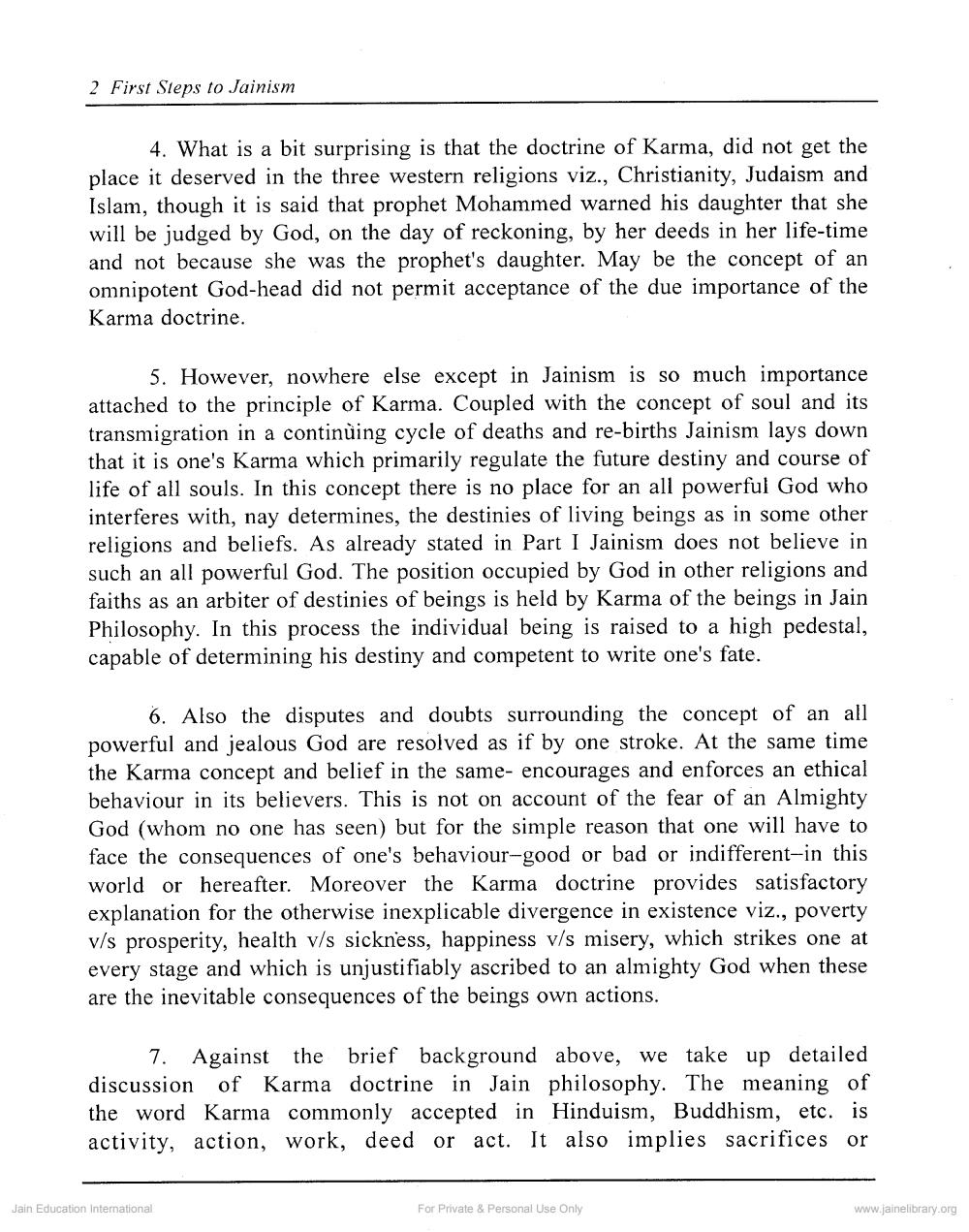________________
2 First Steps to Jainism
4. What is a bit surprising is that the doctrine of Karma, did not get the place it deserved in the three western religions viz., Christianity, Judaism and Islam, though it is said that prophet Mohammed warned his daughter that she will be judged by God, on the day of reckoning, by her deeds in her life-time and not because she was the prophet's daughter. May be the concept of an omnipotent God-head did not permit acceptance of the due importance of the Karma doctrine.
5. However, nowhere else except in Jainism is so much importance attached to the principle of Karma. Coupled with the concept of soul and its transmigration in a continuing cycle of deaths and re-births Jainism lays down that it is one's Karma which primarily regulate the future destiny and course of life of all souls. In this concept there is no place for an all powerful God who interferes with, nay determines, the destinies of living beings as in some other religions and beliefs. As already stated in Part I Jainism does not believe in such an all powerful God. The position occupied by God in other religions and faiths as an arbiter of destinies of beings is held by Karma of the beings in Jain Philosophy. In this process the individual being is raised to a high pedestal, capable of determining his destiny and competent to write one's fate.
6. Also the disputes and doubts surrounding the concept of an all powerful and jealous God are resolved as if by one stroke. At the same time the Karma concept and belief in the same- encourages and enforces an ethical behaviour in its believers. This is not on account of the fear of an Almighty God (whom no one has seen) but for the simple reason that one will have to face the consequences of one's behaviour-good or bad or indifferent-in this world or hereafter. Moreover the Karma doctrine provides satisfactory explanation for the otherwise inexplicable divergence in existence viz., poverty v/s prosperity, health v/s sickness, happiness v/s misery, which strikes one at every stage and which is unjustifiably ascribed to an almighty God when these are the inevitable consequences of the beings own actions.
7. Against the brief background above, we take up detailed discussion of Karma doctrine in Jain philosophy. The meaning of the word Karma commonly accepted in Hinduism, Buddhism, etc. is activity, action, work, deed or act. It also implies sacrifices or
Jain Education International
For Private & Personal Use Only
www.jainelibrary.org




